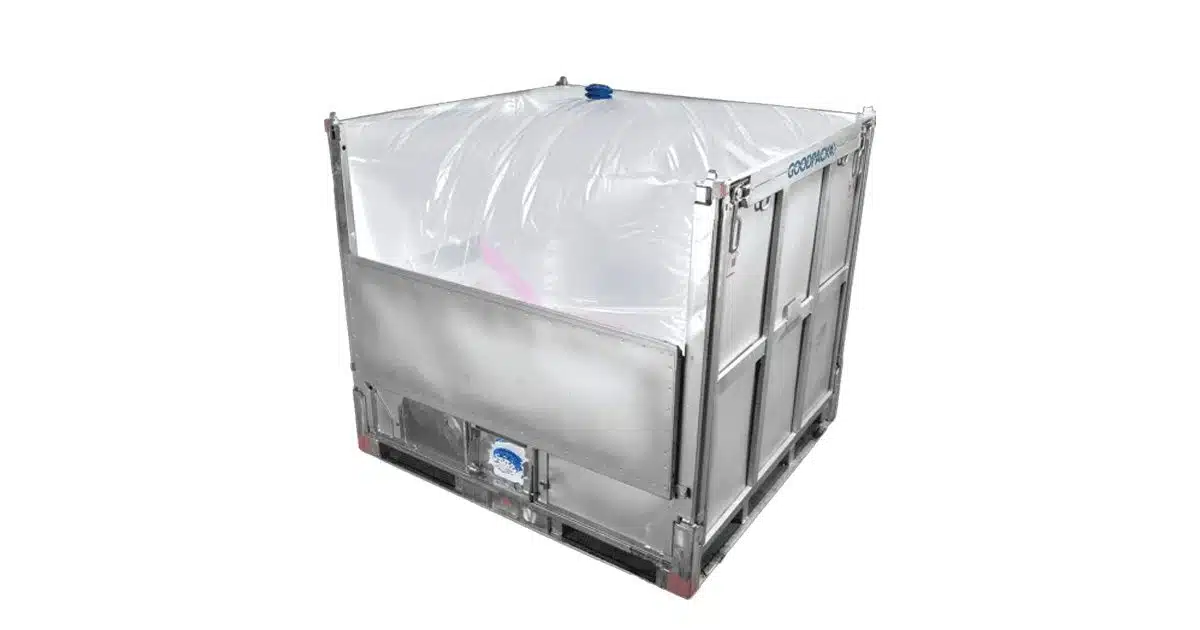Intermediate Bulk Containers (IBCs) have become one of the most effective ways to transport and store liquids across industries. A crucial part of their success comes from the liners that protect products from contamination and simplify container reuse. While there are many liner materials available, polypropylene container liner options stand out for their balance of strength, chemical resistance, and hygiene. To understand their value, it is important to compare polypropylene liners to other types of IBC liners and see where each performs best.
What Is A Polypropylene Liner?
A polypropylene liner is a type of protective container liner made from polypropylene film, a material known for its strength and resistance to moisture, chemicals, and temperature changes. When installed inside an IBC, it creates a barrier between the liquid and the container walls, preventing contamination and preserving product quality. Polypropylene liners are flexible, lightweight, and capable of handling diverse applications, making them a standard choice for many industries.
Comparing Polypropylene To Other IBC Liner Materials
Different liner materials are designed to meet specific needs. For example, polyethylene liners are widely used because of their affordability and versatility, but they may not offer the same level of chemical resistance as polypropylene. Multi-layer liners, which combine films, can provide additional strength or barrier protection but are often more specialized.
Polypropylene liners offer a middle ground: they are more chemically resistant than polyethylene, easier to handle than multi-layer alternatives, and versatile enough to be used for both food-grade and industrial applications. This balance of performance and practicality makes them one of the most widely adopted bulk liquid packaging components.
Benefits Of Polypropylene Liners
Polypropylene liners provide several advantages compared to other liner materials:
-
Chemical resistance: They handle many acids, bases, and solvents better than polyethylene liners.
-
Durability: They resist punctures and stretching during transport.
-
Hygienic properties: Their clean surface helps preserve the integrity of food, beverage, and cosmetic products.
-
Versatility: They can be paired with accessories such as open top liners, dunnage boards, and container lids for a complete protective system.
These advantages make polypropylene liners suitable for industries that require both safety and efficiency.
When Other Liners May Be Suitable
Although polypropylene is versatile, there are times when other liners may be a better choice. For very lightweight applications, a simple polyethylene liner may suffice. In cases where products require exceptional barrier protection, a multi-layer liner might be necessary. However, for most industries that balance cost, durability, and chemical compatibility, polypropylene liners provide an ideal solution.
Choosing The Right Open Top Liners And Polypropylene Liners
Polypropylene liners are often compared with open top liners, which are designed for easy installation and removal. Open tops are especially useful for viscous or hard-to-handle liquids that require wide access points, while polypropylene liners excel at providing chemical resistance and durability. Many operations use them together depending on product needs. To learn more about how these options compare, review this resource on Choosing The Right Open Top Liners And Polypropylene Liners.
Supporting IBC Packaging Materials
Polypropylene liners are most effective when used with other IBC packaging materials that protect and stabilize the system. IBC dunnage boards distribute weight evenly to prevent stress points, while IBC base pads cushion the bottom of the container to reduce wear. IBC top lids and IBC container lids provide the final seal, preventing contamination from above. These IBC protective packaging supplies work together to ensure that liners remain intact and liquids remain safe during shipping and storage.
Applications Across Industries
Polypropylene liners are used in a wide range of industries. In food and beverage, they protect oils, syrups, and juices from contamination. In chemicals, they handle corrosive materials with strength and safety. Cosmetics companies use them for lotions, creams, and gels, while automotive manufacturers rely on them to transport lubricants and antifreeze. This versatility is one of the reasons polypropylene liners are so widely chosen compared to other liner types.
Transport And Storage Benefits
One of the main advantages of polypropylene liners is their ability to perform under the stresses of transport and storage. Liquids exert significant pressure on container walls, and liners without strong resistance may stretch or fail. Polypropylene liners are strong enough to resist these pressures, protecting the container and product throughout the logistics process. They also make container reuse more efficient by eliminating the need for intensive cleaning between uses.
Sustainability Considerations
Polypropylene liners contribute to sustainable operations by extending the life of IBCs and reducing waste from damaged containers. By protecting against contamination, they make it easier to reuse containers without using excessive amounts of water or cleaning chemicals. This not only conserves resources but also reduces costs over time, making polypropylene liners a practical choice for environmentally conscious businesses.
Comprehensive Guidance On IBC Packaging Materials
Selecting the right liner depends on the liquid being shipped, the conditions of transport, and industry requirements. While polypropylene liners are often the best balance of performance and versatility, every business should consider its unique needs before making a decision. For more detailed insights into liner options and supporting accessories, the Comprehensive Guide To IBC Packaging Materials And Components is a valuable resource for exploring all available options.
Why Work With Innovative Liner Solutions
Innovative Liner Solutions provides polypropylene container liner options along with the full range of IBC protective packaging supplies such as dunnage boards, base pads, open top liners, and container lids. Their expertise ensures that businesses receive solutions tailored to their industry and operational requirements. With a focus on safety, efficiency, and sustainability, they deliver complete systems that protect products and improve logistics performance.
Conclusion
Polypropylene liners compare favorably to other IBC liner materials because of their durability, chemical resistance, and versatility. While other liners may serve specialized purposes, polypropylene offers a reliable and cost-effective solution for industries ranging from food to chemicals. When paired with dunnage boards, base pads, top lids, and other packaging supplies, they form a complete system that ensures product safety and container longevity.
For expert advice on polypropylene liners and other IBC packaging materials, contact Innovative Liner Solutions today at (815) 963-9525.


